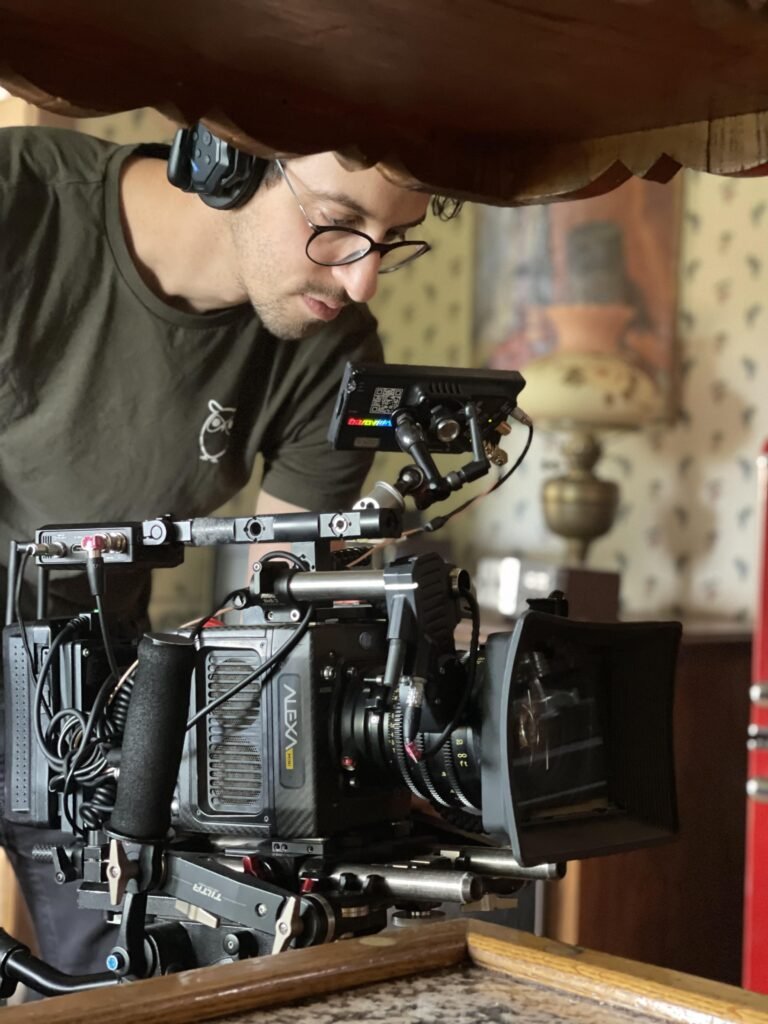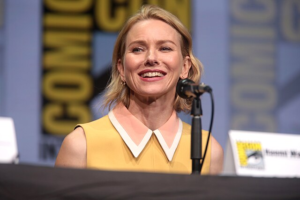
- Looking back on your career, what projects are you most proud of, and why?
Several projects stand out to me as particularly meaningful and impactful in my career. One that I’m especially proud of is MyDorian, which provided an opportunity to collaborate with a talented team and explore innovative cinematographic techniques. The project not only pushed creative boundaries but also garnered critical acclaim and resonated with audiences on a profound level. Additionally, Marketing Sunshine allowed me to work in a new genre, challenging me to adapt my visual style while still maintaining the integrity of the storytelling. Overall, each project has contributed to my growth as a cinematographer and has left a lasting impression on me professionally and personally.
- How has the film industry evolved since you started your career, and what changes do you find most significant?
The film industry has undergone significant evolution since the beginning of my career, with advancements in technology, changes in distribution models, and shifts in audience preferences reshaping the landscape. One of the most significant changes I’ve observed is the widespread adoption of digital cinematography, which has democratized filmmaking and opened up new creative possibilities. Additionally, the rise of streaming platforms has altered the way films are produced, marketed, and consumed, leading to a more diverse and globalized industry.
- What advice would you give to your younger self as you were starting in the industry?
If I could advise my younger self, I would emphasize the importance of perseverance, resilience, and continuous learning. I would encourage myself to embrace failure as an opportunity for growth, to remain open to new experiences and perspectives, and to cultivate a strong network of mentors and collaborators. Most importantly, I would remind myself to stay true to my artistic vision and never lose sight of the passion that initially drew me to cinematography.
- How do you see the role of the cinematographer changing in the future, considering technological advancements and industry trends?
As technology continues to evolve and shape the film industry, the role of the cinematographer will undoubtedly evolve as well. While the core principles of visual storytelling will remain constant, cinematographers will need to adapt to new tools, techniques, and formats to stay relevant in an increasingly competitive landscape. Additionally, the growing influence of virtual production and augmented reality may present new opportunities for creative expression and collaboration.
- How do global landscape shifts and cultural changes impact storytelling and cinematography choices in films?
Global landscape shifts and cultural changes have a profound impact on storytelling and cinematography choices in films, influencing everything from narrative themes and character arcs to visual aesthetics and stylistic conventions. As filmmakers, we must remain attuned to these shifts, embracing diversity and inclusion in our storytelling while respecting the cultural contexts in which our stories are told. By embracing a global perspective and fostering cross-cultural dialogue, we can create films that resonate with audiences worldwide.
- What goals and aspirations do you have for the future of your career as a director of photography?
Looking ahead, my goals and aspirations for my career center around continued growth, creative fulfillment, and meaningful storytelling. I aspire to work on projects that challenge and inspire me, collaborate with diverse voices and perspectives, and push visual storytelling’s boundaries in exciting new directions. Ultimately, my goal is to leave a lasting impact on the industry and to contribute to the evolution of cinema as an art form.
- How do you balance setting personal goals with adapting to the evolving landscape of the film industry?
Balancing personal goals with adapting to the evolving landscape of the film industry requires flexibility, adaptability, and a willingness to embrace change. I approach this balance by setting overarching career objectives while remaining open to new opportunities and unexpected developments. By maintaining a growth mindset and staying attuned to industry trends, I can navigate shifts in the landscape while staying true to my long-term aspirations and creative vision.
- How has your perspective on success and fulfillment within the industry evolved over the course of your career?
Throughout my career, my perspective on success and fulfillment within the industry has evolved from a focus on external validation to a deeper appreciation for personal growth, creative fulfillment, and meaningful collaboration. While recognition and accolades are certainly gratifying, I’ve come to realize that true fulfillment comes from the creative process itself, from the relationships forged on set, and from the impact our work has on audiences around the world.
- Can you discuss the importance of constantly evolving and adapting in an ever-changing industry?
Constantly evolving is essential for staying relevant, competitive, and creatively fulfilled as a director of photography. In an industry characterized by rapid technological advancements and shifting audience preferences, complacency is not an option. By embracing change, embracing new challenges, and embracing a mindset of lifelong learning, we can continue to grow as artists and storytellers, pushing the boundaries of what’s possible in visual storytelling.
- How has your cultural background influenced your storytelling choices and visual aesthetics in cinematography?
My cultural background has had a profound influence on my storytelling choices and visual aesthetics in cinematography, shaping the themes, motifs, and perspectives that inform my work. Drawing on my cultural heritage, I strive to infuse my storytelling with authenticity, diversity, and a deep appreciation for the human experience. Whether through subtle nods to cultural traditions or more overt explorations of identity and belonging, my goal is to create films that resonate with audiences on a universal level while celebrating the richness and diversity of our world.
- How do you ensure that each project contributes to your personal and professional growth as a cinematographer?
To ensure that each project contributes to my personal and professional growth as a cinematographer, I approach each opportunity as a learning experience and a chance to push myself creatively. I seek out projects that challenge and inspire me, that allow me to explore new techniques and approaches, and that foster collaboration with talented filmmakers and creatives. By embracing every project as an opportunity for growth and development, I can continue to evolve as an artist and storyteller, constantly striving to refine my craft and expand my creative horizons.
- Can you discuss the balance between seeking new challenges and refining your existing skill set for continuous improvement?
While it’s important to push oneself out of comfort zones and explore new creative avenues, it’s equally important to hone and refine foundational skills through practice, experimentation, and self-reflection. By striking a balance between seeking new challenges and refining existing skill sets, we can cultivate a diverse and dynamic skill set that allows us to thrive in an ever-changing industry.








